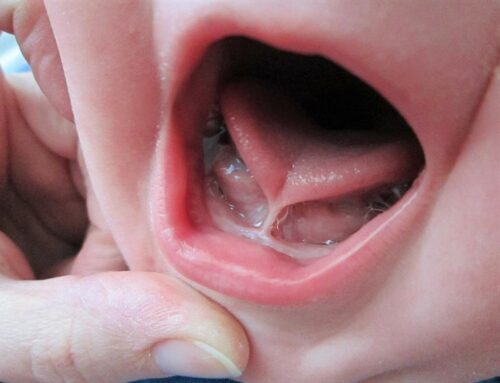El articulo a continuación expuesto viene a decir que en hiperactividad, la dieta es fundamental, y las directrices básicas son: verdura, no demasiada fruta, legumbres, cereales enteros y pescado. Tambiés es necesaria la suplementación de AGPI omega 3 y 6 (Synerviol), Zinc (Oligoviol A por ejemplo) y hierro (Supralfa).
Es imprescindible eliminar azúcares, refinados y grasas saturadas, y la dieta debe ser más bien cetogénica: necesario 1 hora de actividad física intensa a diario y pasar algo de hambre: cenar sólo verdura por ejemplo.
Yo esto venía haciéndolo hace años y sin saber muy porqué los niños hiperactivos mejoraban mucho!
Otro aspecto interesante del artículo es que en estudio doble ciego con megadosis de vitaminas, empeoran los niños con suplementación: la atención empeora y se elevan las transaminasas hepáticas.
——-
2012;129;330; originally published online January 9, 2012;
J. Gordon Millichap and Michelle M. Yee
The Diet Factor in Attention-Deficit/Hyperactivity Disorder
https://pediatrics.aappublications.org/content/129/2/330.full.html
This article is intended to provide a comprehensive overview of the role of dietary methods for treatment of children with attention-de ficit/ hyperactivity disorder (ADHD) when pharmacotherapy has proven unsatisfactory or unacceptable. Results of recent research and controlled studies, based on a PubMed search, are emphasized and compared with earlier reports. The recent increase of interest in this form of therapy for ADHD, and especially in the use of omega supplements, significance of iron deficiency, and the avoidance of the “Western pattern” diet, make the discussion timely.
Diets to reduce symptoms associated with ADHD include sugar-restricted, additive/preservative-free, oligoantigenic/elimination, and fatty acid supplements. Omega 23 supplement is the latest dietary treatment with positive reports of efficacy, and interest in the additive-free diet of the 1970s is occasionally revived. A provocative report draws attention to the ADHD-associated “Western-style” diet, high in fat and refined sugars, and the ADHD-free “healthy” diet, containing fiber, folate, and omega-3 fatty acids.
The literature on diets and ADHD, listed by PubMed, is reviewed with emphasis on recent controlled studies. Recommendations for the use of diets are based on current opinion of published reports and our practice experience. Indications for dietary therapy include medication failure, parental or patient preference, iron deficiency, and, when appropriate, change from an ADHD-linked Western diet to an ADHD-free healthy diet. Foods associated with ADHD to be avoided and those not linked with ADHD and preferred are listed.
In practice, additive-free and oligoantigenic/elimination diets are timeconsuming and disruptive to the household; they are indicated only in selected patients. Iron and zinc are supplemented in patients with
known deficiencies; they may also enhance the effectiveness of stimulant therapy. In patients failing to respond or with parents opposed to medication, omega-3 supplements may warrant a trial. A greater attention the education of parents and children in a healthy dietary pattern, omitting items shown to predispose to ADHD, is perhaps the most promising and practical complementary or alternative treatment of ADHD. Pediatrics 2012;129:330–337
Publicado por Itziar González de Arriba
El articulo a continuación expuesto viene a decir que en hiperactividad, la dieta es fundamental, y las directrices básicas son: verdura, no demasiada fruta, legumbres, cereales enteros y pescado. Tambiés es necesaria la suplementación de AGPI omega 3 y 6 (Synerviol), Zinc (Oligoviol A por ejemplo) y hierro (Supralfa).
Es imprescindible eliminar azúcares, refinados y grasas saturadas, y la dieta debe ser más bien cetogénica: necesario 1 hora de actividad física intensa a diario y pasar algo de hambre: cenar sólo verdura por ejemplo.
Yo esto venía haciéndolo hace años y sin saber muy porqué los niños hiperactivos mejoraban mucho!
Otro aspecto interesante del artículo es que en estudio doble ciego con megadosis de vitaminas, empeoran los niños con suplementación: la atención empeora y se elevan las transaminasas hepáticas.
——-
2012;129;330; originally published online January 9, 2012;
J. Gordon Millichap and Michelle M. Yee
The Diet Factor in Attention-Deficit/Hyperactivity Disorder
https://pediatrics.aappublications.org/content/129/2/330.full.html
This article is intended to provide a comprehensive overview of the role of dietary methods for treatment of children with attention-de ficit/ hyperactivity disorder (ADHD) when pharmacotherapy has proven unsatisfactory or unacceptable. Results of recent research and controlled studies, based on a PubMed search, are emphasized and compared with earlier reports. The recent increase of interest in this form of therapy for ADHD, and especially in the use of omega supplements, significance of iron deficiency, and the avoidance of the “Western pattern” diet, make the discussion timely.
Diets to reduce symptoms associated with ADHD include sugar-restricted, additive/preservative-free, oligoantigenic/elimination, and fatty acid supplements. Omega 23 supplement is the latest dietary treatment with positive reports of efficacy, and interest in the additive-free diet of the 1970s is occasionally revived. A provocative report draws attention to the ADHD-associated “Western-style” diet, high in fat and refined sugars, and the ADHD-free “healthy” diet, containing fiber, folate, and omega-3 fatty acids.
The literature on diets and ADHD, listed by PubMed, is reviewed with emphasis on recent controlled studies. Recommendations for the use of diets are based on current opinion of published reports and our practice experience. Indications for dietary therapy include medication failure, parental or patient preference, iron deficiency, and, when appropriate, change from an ADHD-linked Western diet to an ADHD-free healthy diet. Foods associated with ADHD to be avoided and those not linked with ADHD and preferred are listed.
In practice, additive-free and oligoantigenic/elimination diets are timeconsuming and disruptive to the household; they are indicated only in selected patients. Iron and zinc are supplemented in patients with
known deficiencies; they may also enhance the effectiveness of stimulant therapy. In patients failing to respond or with parents opposed to medication, omega-3 supplements may warrant a trial. A greater attention the education of parents and children in a healthy dietary pattern, omitting items shown to predispose to ADHD, is perhaps the most promising and practical complementary or alternative treatment of ADHD. Pediatrics 2012;129:330–337
Publicado por Itziar González de Arriba




